This article was co-authored by Asa Don Brown, PhD, DNCCM, FAAETS and by wikiHow staff writer, Aly Rusciano. Dr. Asa Don Brown is a Clinical Psychologist with over 25 years of experience. He specializes in working with families, children, and couples, treating a variety of psychological disorders, trauma, and abuse. Dr. Brown has specialized in negotiation and profiling. He is also a prolific author having published three books and numerous articles in magazines, journals, and popular publications. Dr. Brown earned a BS in Theology and Religion with a minor in Marketing and an MS in Counseling with a specialization in Marriage and Family from The University of Great Falls. Furthermore, he received a PhD in Psychology with a specialization in Clinical Psychology from Capella University. He is also a candidate for a Masters of Liberal Arts through Harvard University. Dr. Brown is a Fellow of the American Academy of Experts in Traumatic Stress and a Diplomate for the National Center for Crisis Management and continues to serve a number of psychological and scientific boards.
There are 14 references cited in this article, which can be found at the bottom of the page.
This article has been viewed 16,611 times.
We all have bad body image days every once in a while, but if those days become few and far in-between, you may be obsessing over your body. How we think about ourselves can weigh heavily on our mental health, and obsessing over every inch of yourself can be exhausting. But how can you stop when it’s all you can think about? We know things right now are rough, and we’re here for you—you can overcome this.
Steps
Expert Q&A
-
QuestionHow do I stop overthinking my body image?
 Asa Don Brown, PhD, DNCCM, FAAETSDr. Asa Don Brown is a Clinical Psychologist with over 25 years of experience. He specializes in working with families, children, and couples, treating a variety of psychological disorders, trauma, and abuse. Dr. Brown has specialized in negotiation and profiling. He is also a prolific author having published three books and numerous articles in magazines, journals, and popular publications. Dr. Brown earned a BS in Theology and Religion with a minor in Marketing and an MS in Counseling with a specialization in Marriage and Family from The University of Great Falls. Furthermore, he received a PhD in Psychology with a specialization in Clinical Psychology from Capella University. He is also a candidate for a Masters of Liberal Arts through Harvard University. Dr. Brown is a Fellow of the American Academy of Experts in Traumatic Stress and a Diplomate for the National Center for Crisis Management and continues to serve a number of psychological and scientific boards.
Asa Don Brown, PhD, DNCCM, FAAETSDr. Asa Don Brown is a Clinical Psychologist with over 25 years of experience. He specializes in working with families, children, and couples, treating a variety of psychological disorders, trauma, and abuse. Dr. Brown has specialized in negotiation and profiling. He is also a prolific author having published three books and numerous articles in magazines, journals, and popular publications. Dr. Brown earned a BS in Theology and Religion with a minor in Marketing and an MS in Counseling with a specialization in Marriage and Family from The University of Great Falls. Furthermore, he received a PhD in Psychology with a specialization in Clinical Psychology from Capella University. He is also a candidate for a Masters of Liberal Arts through Harvard University. Dr. Brown is a Fellow of the American Academy of Experts in Traumatic Stress and a Diplomate for the National Center for Crisis Management and continues to serve a number of psychological and scientific boards.
Clinical Psychologist Achieving a healthier perspective and self-image is possible, but be aware that there are many triggers that have reinforced your negative body image. You must remove all negative self-talk and learn to deflect it with a positive affirmation. Any mistakes or departures from your progress are opportunities for growth and learning.
Achieving a healthier perspective and self-image is possible, but be aware that there are many triggers that have reinforced your negative body image. You must remove all negative self-talk and learn to deflect it with a positive affirmation. Any mistakes or departures from your progress are opportunities for growth and learning. -
QuestionWhat is it called when you're obsessed with your body?
 Asa Don Brown, PhD, DNCCM, FAAETSDr. Asa Don Brown is a Clinical Psychologist with over 25 years of experience. He specializes in working with families, children, and couples, treating a variety of psychological disorders, trauma, and abuse. Dr. Brown has specialized in negotiation and profiling. He is also a prolific author having published three books and numerous articles in magazines, journals, and popular publications. Dr. Brown earned a BS in Theology and Religion with a minor in Marketing and an MS in Counseling with a specialization in Marriage and Family from The University of Great Falls. Furthermore, he received a PhD in Psychology with a specialization in Clinical Psychology from Capella University. He is also a candidate for a Masters of Liberal Arts through Harvard University. Dr. Brown is a Fellow of the American Academy of Experts in Traumatic Stress and a Diplomate for the National Center for Crisis Management and continues to serve a number of psychological and scientific boards.
Asa Don Brown, PhD, DNCCM, FAAETSDr. Asa Don Brown is a Clinical Psychologist with over 25 years of experience. He specializes in working with families, children, and couples, treating a variety of psychological disorders, trauma, and abuse. Dr. Brown has specialized in negotiation and profiling. He is also a prolific author having published three books and numerous articles in magazines, journals, and popular publications. Dr. Brown earned a BS in Theology and Religion with a minor in Marketing and an MS in Counseling with a specialization in Marriage and Family from The University of Great Falls. Furthermore, he received a PhD in Psychology with a specialization in Clinical Psychology from Capella University. He is also a candidate for a Masters of Liberal Arts through Harvard University. Dr. Brown is a Fellow of the American Academy of Experts in Traumatic Stress and a Diplomate for the National Center for Crisis Management and continues to serve a number of psychological and scientific boards.
Clinical Psychologist An unhealthy body image leads many to developing a number of mental and physical health issues. The most common of these mental health issues is Body Dysmorphic Disorder (BDD), which occurs when we have a skewed view on our body image.
An unhealthy body image leads many to developing a number of mental and physical health issues. The most common of these mental health issues is Body Dysmorphic Disorder (BDD), which occurs when we have a skewed view on our body image.
References
- ↑ Asa Don Brown, PhD, DNCCM, FAAETS. Clinical Psychologist. Expert Interview. 3 February 2022.
- ↑ https://www.psychologytoday.com/us/blog/when-your-adult-child-breaks-your-heart/201501/how-improve-your-body-image
- ↑ Asa Don Brown, PhD, DNCCM, FAAETS. Clinical Psychologist. Expert Interview. 3 February 2022.
- ↑ https://www.eatingdisorderhope.com/blog/body-checking-mirrors-eating-disorder-behavior
- ↑ https://www.nationaleatingdisorders.org/learn/general-information/ten-steps
- ↑ https://health.clevelandclinic.org/7-tips-for-building-a-better-body-image-as-an-adult/
- ↑ https://www.nationaleatingdisorders.org/learn/general-information/ten-steps
- ↑ Asa Don Brown, PhD, DNCCM, FAAETS. Clinical Psychologist. Expert Interview. 3 February 2022.
- ↑ https://health.clevelandclinic.org/7-tips-for-building-a-better-body-image-as-an-adult/
- ↑ Asa Don Brown, PhD, DNCCM, FAAETS. Clinical Psychologist. Expert Interview. 3 February 2022.
- ↑ https://www.eatingdisorderhope.com/treatment-for-eating-disorders/types-of-treatments/cognitive-behavioral-therapy-cbt/cognitive-behavioral-therapy-and-body-image
- ↑ https://www.healthyplace.com/blogs/survivinged/2019/12/how-to-reframe-negative-self-talk-around-body-image
- ↑ https://www.nationaleatingdisorders.org/learn/general-information/ten-steps
- ↑ https://counseling.uoregon.edu/how-stop-obsessing
- ↑ https://www.helpguide.org/articles/anxiety/body-dysmorphic-disorder-bdd.htm
- ↑ https://www.colorado.edu/health/2020/06/05/5-ways-practice-positive-body-image
- ↑ Asa Don Brown, PhD, DNCCM, FAAETS. Clinical Psychologist. Expert Interview. 3 February 2022.
- ↑ https://www.colorado.edu/health/2020/06/05/5-ways-practice-positive-body-image
- ↑ Tara Coleman. Clinical Nutritionist. Expert Interview. 22 October 2020.
- ↑ https://kidshealth.org/en/teens/body-image.html
- ↑ Tara Coleman. Clinical Nutritionist. Expert Interview. 22 October 2020.
- ↑ Tara Coleman. Clinical Nutritionist. Expert Interview. 22 October 2020.
- ↑ https://kidshealth.org/en/teens/body-image.html
- ↑ https://www.nationaleatingdisorders.org/learn/general-information/ten-steps
- ↑ https://www.nationaleatingdisorders.org/learn/general-information/ten-steps
- ↑ Asa Don Brown, PhD, DNCCM, FAAETS. Clinical Psychologist. Expert Interview. 3 February 2022.
- ↑ https://www.helpguide.org/articles/anxiety/body-dysmorphic-disorder-bdd.htm
- ↑ https://www.nationaleatingdisorders.org/help-support/contact-helpline
- ↑ https://www.nami.org/help
- ↑ Asa Don Brown, PhD, DNCCM, FAAETS. Clinical Psychologist. Expert Interview. 3 February 2022.
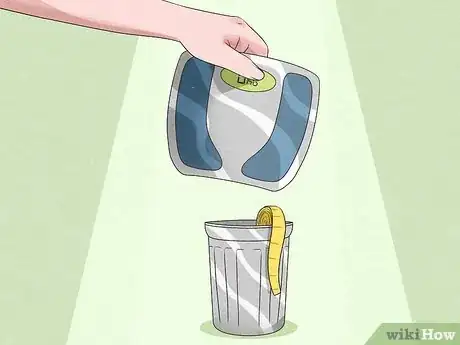


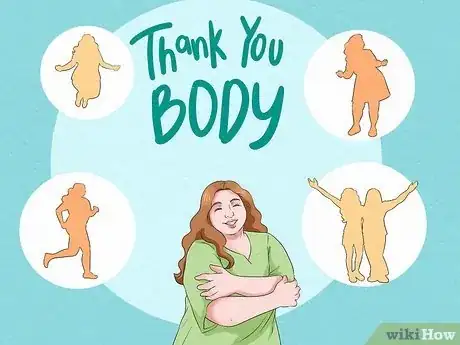
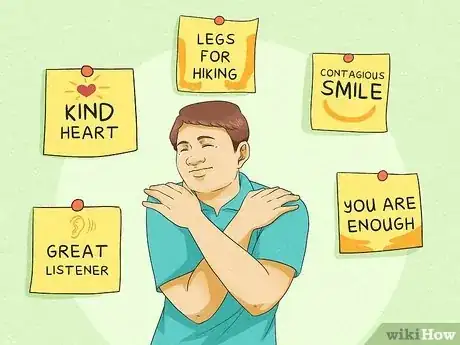

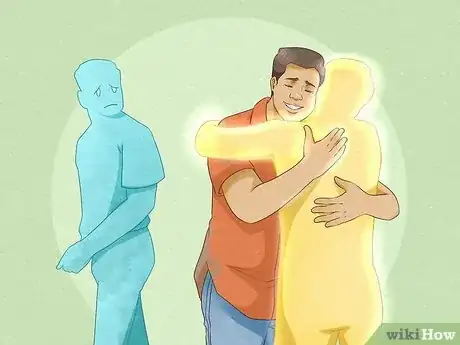
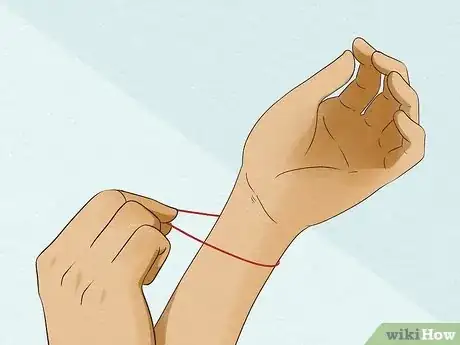













-Step-16-Version-2.webp)




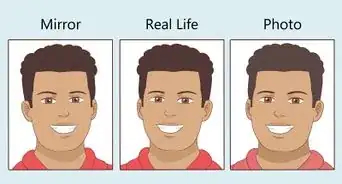

















































Medical Disclaimer
The content of this article is not intended to be a substitute for professional medical advice, examination, diagnosis, or treatment. You should always contact your doctor or other qualified healthcare professional before starting, changing, or stopping any kind of health treatment.
Read More...